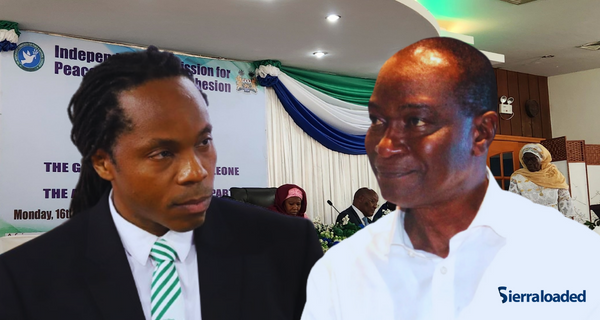Resolution 4(b), a significant provision of the newly brokered agreement between the Government of Sierra Leone and the All Peoples Congress Party (APC) has ignited intense discussion and contemplation about the nation’s political and judicial landscape.
Resolution 4(b) states, “The discontinuation of any politically motivated court cases against the APC, other parties, and their supporters (based on a list to be submitted by the APC and other parties and considered by the Government of Sierra Leone).”
This provision’s acceptance by the democratically elected government has left many astonished, as it effectively acknowledges the existence of politically motivated legal cases in Sierra Leone’s recent history.
The key question now is how Sierra Leone’s judiciary will interpret this official recognition of politically motivated cases.
To shed light on the implications of this acknowledgment, Alpha Bah, an Environmental Enthusiast, Political Analyst, Law and Foreign Relations Analyst, explains that politically motivated cases are legal proceedings initiated or influenced by political motivations rather than being solely based on objective evidence or legal principles. Such cases may involve unfounded charges, biased investigations, or selective enforcement of laws aimed at targeting political rivals, opposition parties, or dissenting voices. This concept raises concerns about the impartial administration of justice.
With the government’s acceptance of this resolution, some Sierra Leonean observers are left pondering whether it implies an admission that the judicial system was employed as a tool of political oppression in the past. The dialogue continues as Sierra Leone navigates the path toward national unity and grapples with the challenges associated with politically motivated cases in its pursuit of a fair and equitable legal system.



 3 Comments
3 Comments










To say that the government of Sierra Leone has agreed to implement this particular resolution is untrue and misleading. This resolution, as wirh all resolutions in the agreement, would be presented to the relevant authorities/institutions for their consideration. In other words, in the case of Resolution 4(g), it is the courts that would take the decision to drop the charges against APC members that have broken the law, or not! Readers should pay attention to these key phrases in the resolutopms: a) for government consideration; b) appropriate appropriators; c) subject to government consideration. Any other interpretation is mere speculation, and untrue..
What is the difference.with government consideration.meaning all these case we’re ignited by the government through the misuse of the court system in sierra Leone.shameful
I can see another drama between the government and the APC. It seems the SLPP led-government might not adhere to the dictates of the communique, especially the implementation of above clause. Those who were arrested during the various protests and detained with or without charges, fall under the category of politically motivated cases. There are hundreds of cases were the investigations are biased , and politically motivated. In all this, since the government wanted peace with the APC to move forward in leadership, they should be ready to comply to the agreement. Like I always say, there was not conflict between the APC and the government, that warranted a mediation. However, since the government took the place of ECSL, the APC made their case with them. The government had no complaints against the APC. Therefore, a large part of the communique favours the APC, to the annoyance of the government or SLPP.